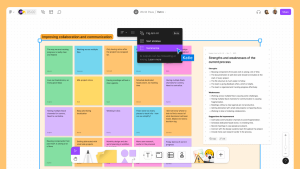
It’s not news to anyone that we are all are being confronted with an array of challenges in the workplace today. After having many conversations with leaders over the last few weeks, I offer you a mindfulness-based emotional intelligence approach to leading as we surge ahead into the last half of 2021.
Growth mindset
A growth mindset assumes that what has been experienced in the past and what is happening in this very moment are opportunities to learn and expand awareness for future growth.
Someone with a growth mindset recognizes that the most difficult challenges as something to learn from and this helps them be more resilient as new challenges present themselves.
Self-awareness
The basic skills of emotional intelligence center on understanding and management of one’s emotions as well as those of others. This allows us to understand our own strengths and weaknesses and how that affects the performance and emotions of everyone around us.
Self-management
When we are self-aware, we are better able to manage our emotions, especially in stressful situations. We can take a pause before reacting and respond from a more considered position. This reduces the number of automatic reactions and increases the number of intentional responses.
Social awareness
With self-awareness, it is much easier to be an observer of group dynamics and use social awareness to better ascertain how to manage and communicate with the team. This builds better relationships and resolves conflict more quickly with respect and compassion.
Listening
Think of the last time you felt truly heard, as though the person you were speaking to had you, and only you on their mind.
Now think of the conversation where the person interrupted, told you the answer before you asked the question, or looked right past you as you spoke. Which one do you want to work for? Which do you trust?
Listening is a crucial skill for all of us, but especially leaders. Adopt what is often called a “beginner’s mind”, without a pre-conceived assumption of the person or the topic. Wait for them to finish speaking even if you have to mentally remind yourself “listen”! When we listen without assuming we already have the answer we both give and earn respect, developing trust with everyone involved.
Compassion
Leading with compassion entails understanding what motivates each person on the team and what their personal challenges are. This gives individuals room to be their best based on where they are, removing roadblocks with creative and critical thinking.
A compassionate leader sees the struggles and sufferings of their team and demonstrates understanding and a desire to help alleviate their suffering. Compassion (as opposed to simple empathy) creates distance from the emotion of the situation, so we don’t join in the suffering but have space to take action in a deliberate and considered fashion.
Resilience
Psychologists often define resilience as the ability to adapt in the face of stress, trauma, adversity, and change. When we are resilient we can use our emotions more intelligently and improve relationships at home and at work. Resilience allows us to adapt quickly, be better able to advocate for ourselves and others as well as others, and bring critical thinking skills forward without the cloud of emotional thinking.
Business & Finance Articles on Business 2 Community
(63)







